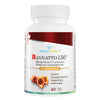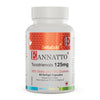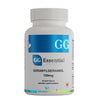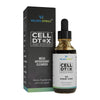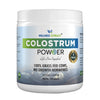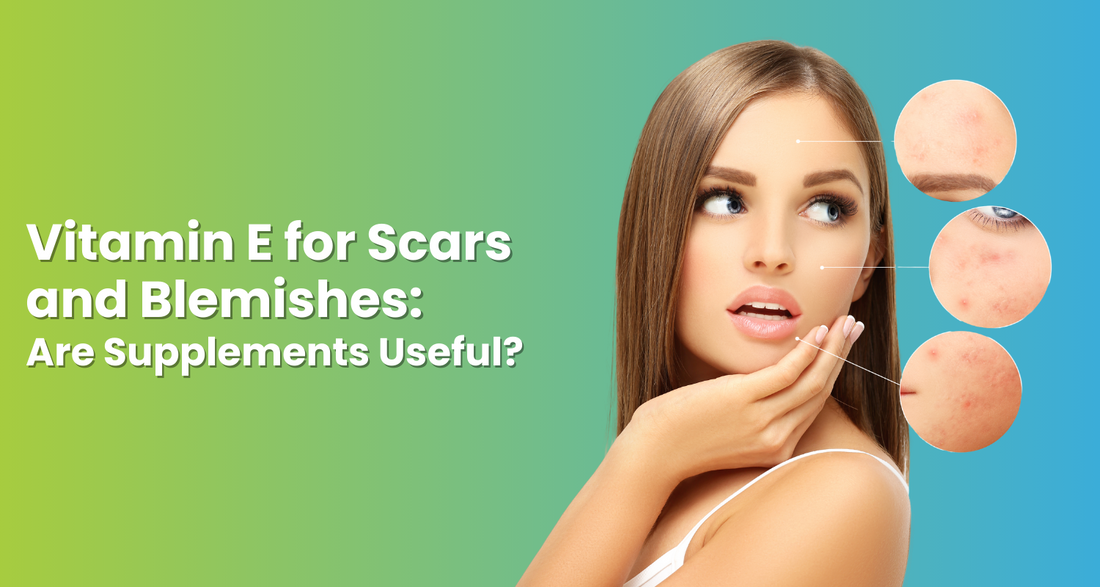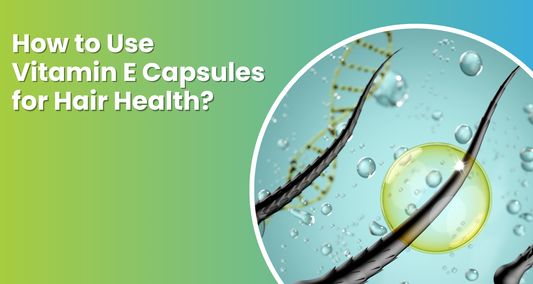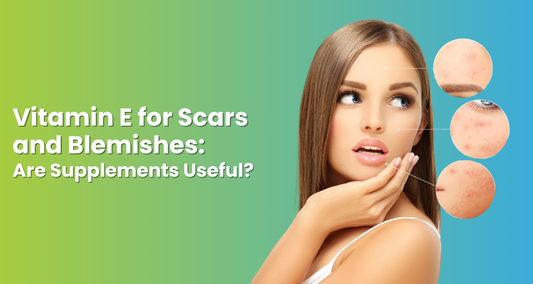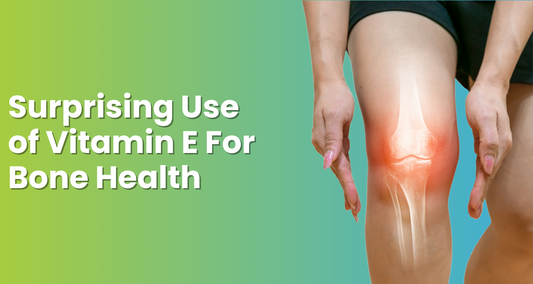Scars and blemishes can be a constant reminder of pesky acne or any type of injury. While we all wish for flawless skin, there's a lot of misinformation floating around about miracle cures. One common remedy? Vitamin E.
In this blog post, we'll dive into the science behind vitamin E and its effectiveness in fading scars and blemishes. We'll explore the significance of Vitamin E for scars in skincare, particularly its role in scar healing.
Why Vitamin E for Scars?

Vitamin E is a fat-soluble antioxidant renowned for its ability to neutralize free radicals and promote skin health. With its moisturizing and protective properties, Vitamin E has earned its place as a staple in numerous skincare products. But beyond its moisturizing benefits, vitamin E has the potential to aid in scar healing, making it a valuable asset in the quest for flawless skin.
Understanding Scars and Blemishes
Scars and blemishes serve as reminders of past skin traumas, ranging from injuries to acne breakouts. Understanding their nature is crucial in devising effective treatment strategies.
Scars can manifest in various forms, including atrophic, hypertrophic, and keloid scars, each with distinct characteristics and treatment requirements. Blemishes, on the other hand, encompass pigmentation marks, acne scars, and uneven skin texture, often stemming from inflammatory skin conditions.
Several factors contribute to scar formation, including genetics, wound depth, and skin type. The body's healing process involves the formation of new collagen fibers, which can sometimes result in irregularities in the skin's texture and pigmentation. Addressing these underlying causes is essential in effectively managing scars and blemishes.
Vitamin E to Heal Scars: Can I use it?

Vitamin E emerges as a promising candidate in scar healing, owing to its multifaceted benefits for skin health. As a potent antioxidant, Vitamin E scavenges free radicals, preventing oxidative stress and cellular damage.
Additionally, Vitamin E possesses anti-inflammatory properties, which can aid in reducing inflammation and promoting tissue repair. Its moisturizing properties further contribute to maintaining skin hydration, essential for optimal wound healing.
Beyond its antioxidant and anti-inflammatory effects, Vitamin E plays a crucial role in supporting collagen synthesis, the foundation of healthy skin. By stimulating collagen production, Vitamin E facilitates the regeneration of damaged skin tissue, helping to minimize the appearance of scars and blemishes over time.
What is the Science Behind Vitamin E for Scars?
Scientific research provides compelling evidence for the efficacy of Vitamin E to heal scars. Numerous studies have investigated the effects of topical Vitamin E application on scar appearance, with many reporting positive outcomes.
Vitamin E's mechanisms of action on scars involve modulating collagen synthesis, reducing inflammation, and promoting wound healing. Additionally, Vitamin E's ability to enhance skin barrier function contributes to its overall efficacy in scar management.
While the scientific evidence supporting Vitamin E for scars' role in scar healing is promising, it's essential to note that individual responses may vary. Factors such as scar type, severity, and skin sensitivity can influence the outcomes of Vitamin E for scars treatment. Thus, a personalized approach tailored to individual needs is paramount in achieving optimal results.
Debunking Myths: Can Vitamin E Alone Heal Scars?

Despite its potential benefits, Vitamin E is not a miracle cure for scars and blemishes. Addressing common misconceptions surrounding Vitamin E's effectiveness is crucial in setting realistic expectations.
While Vitamin E can aid in scar healing, it is rarely sufficient as a standalone treatment. A holistic skincare approach, encompassing proper wound care, sun protection, and other scar management strategies, is essential for optimal results.
Soft Gel Supplements vs. Vitamin E oil: Which is Better?
When it comes to incorporating Vitamin E into your skincare routine, you have two primary options: oral supplements or topical application. Oral Vitamin E supplements offer systemic benefits for overall skin health, while topical application allows for targeted delivery to specific areas of concern.
Refer to the table below for the highlights of the comparison of Vitamin E capsule supplementation and topical application for various factors:
|
Aspect |
Supplements |
Topical Application |
|
Absorption |
Higher absorption rate in the body |
Localized effect on the skin |
|
Convenience |
Easy to consume, suitable for daily use |
Requires consistent application |
|
Efficacy |
Systemic benefits for overall health |
Directly targets specific skin areas |
|
Dosage control |
Precise dosage control |
Application amount may vary |
|
Accessibility |
Widely available in stores |
May require specific skincare products |
|
Long-term effects |
Supports overall health benefits |
Focuses primarily on skin improvement |
|
Cost-effectiveness |
Cost-effective over time |
May require higher initial investment |
Note, the choice between supplements and topical application ultimately depends on individual needs and preferences. Consulting a healthcare professional is advisable before making any decisions regarding supplementation.
Follow a Proper Skincare Routine

Incorporating Vitamin E-rich products into a comprehensive skincare regimen can enhance its efficacy in scar healing. Proper cleansing, exfoliation, and moisturization are essential for maintaining skin health and supporting the healing process. When selecting skincare products, look for formulations containing Vitamin E Tocotrienols alongside other beneficial ingredients like Vitamin C, hyaluronic acid, and retinoids for synergistic effects.
Check Risks and Precautions
While Vitamin E is generally safe for topical use, excessive consumption or application can lead to adverse effects. Potential side effects of Vitamin E include skin irritation, allergic reactions, and in rare cases, contact dermatitis. To minimize the risk of adverse reactions, it's essential to follow recommended dosages and usage instructions when using Vitamin E-containing products.
Also read: What is Vitamin E Good For? Understanding its Impact on Your Health
Check Real-Life Experiences: Customer Feedback and Case Studies

Real-life experiences offer valuable insights into the effectiveness of Vitamin E for scars healing. Many individuals have reported significant improvements in scar appearance and skin texture after incorporating Vitamin E for scars into their skincare routines. However, it's important to approach customer reviews with caution and consider the limitations of individual experiences.
Look for Expert Insights: Dermatologists’ Perspective
Dermatologists and skincare experts provide invaluable insights into the efficacy of Vitamin E for scars healing. While acknowledging its potential benefits, they emphasize the importance of a personalized approach tailored to individual needs.
Consulting with a dermatologist can help determine the most suitable treatment options, which may include Vitamin E for scars-based products or professional skincare treatments.
Final Thoughts!

In conclusion, Vitamin E holds promise as a valuable asset in scar healing and skincare. While scientific evidence supports its efficacy, it's essential to approach Vitamin E for scars treatment with realistic expectations and a holistic skincare approach.
By understanding the underlying mechanisms of Vitamin E for scars and incorporating it into a comprehensive skincare regimen, individuals can harness its potential benefits for achieving smoother, healthier-looking skin. Remember, informed decision-making and consistency are key to unlocking the full potential of Vitamin E to heal scars in scar healing.
Related articles: Vitamin A and Vitamin E for Skin: Glow & Youthfulness Boost
Vitamin E for Fatty Liver - How Much Vitamin E is Good for Your Liver?
